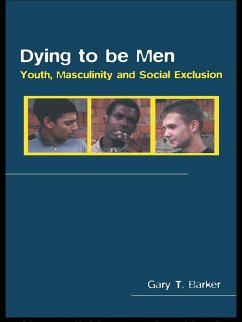Worldwide data on violence confirms that young men are the commonest perpetrators and recipients of violence, ranging from homicide to lesser forms of violence such as assault and delinquent behavior. Among young men in North and Latin America the incidence of violence, and homicide, is the highest in the world. Largely urban-based, the violence is clearly related to social exclusion, unemployment, and curtailed educational opportunities, although the versions of male identity prevailing in this context also appear to play a very large part in supporting and encouraging the use of violence, especially against women. The health consequences, and financial cost, of violence are considerable.
At the same time, despite the general acceptance of a traditional and callous version of manhood in such settings, there are young men who do not get involved in violence - the 'peace boys'. How can this be explained?
Based on field research and interviews in the USA and Brazil, "Dying to be Menexplores how manhood or male identity is shaped in poor urban settings, how it is that some young men resist the prevailing norms, what the implications are for social policy and what are the most important forms of intervention.
At the same time, despite the general acceptance of a traditional and callous version of manhood in such settings, there are young men who do not get involved in violence - the 'peace boys'. How can this be explained?
Based on field research and interviews in the USA and Brazil, "Dying to be Menexplores how manhood or male identity is shaped in poor urban settings, how it is that some young men resist the prevailing norms, what the implications are for social policy and what are the most important forms of intervention.
Dieser Download kann aus rechtlichen Gründen nur mit Rechnungsadresse in A, B, BG, CY, CZ, D, DK, EW, E, FIN, F, GR, HR, H, IRL, I, LT, L, LR, M, NL, PL, P, R, S, SLO, SK ausgeliefert werden.


